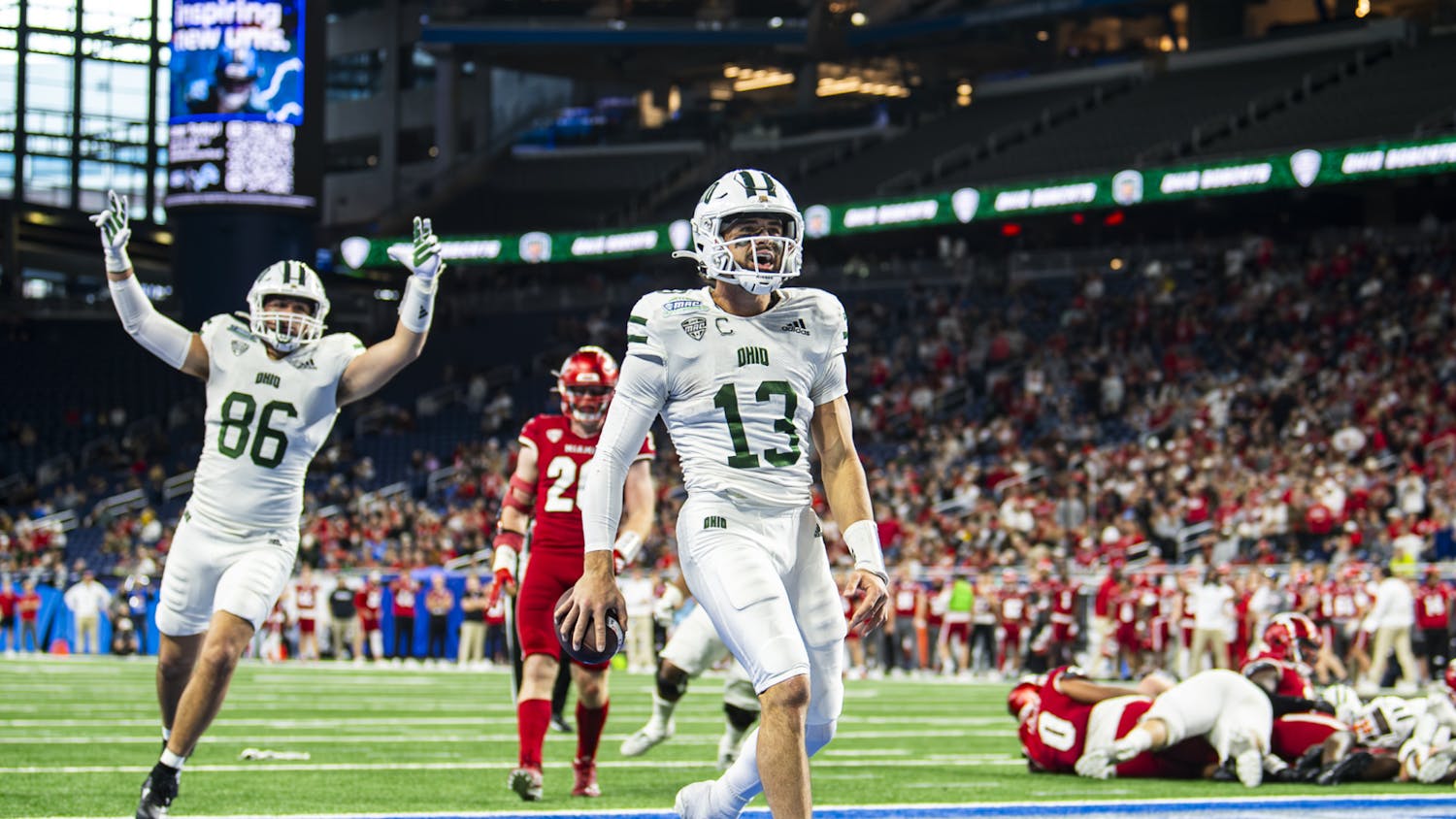Dear Ohio University Police Chief Andrew Powers,
I appreciate your attempt to explain the arrest of 70 Ohio University students during a peaceful protest in the Baker Student Center. I do not appreciate, however, that this is simply an extension of the stonewalling that has been coming from our upper administration. This is not your fault; it is the fault of our leadership who continue to hide behind the police actions.
They, not you, should explain the situation. And they should, in the first place, explain why nobody of their ilk negotiated with the students before arrests took place, why nobody assumed their responsibility for talking with the students, rather than treating them as mere disruptors that require forceful police action.
Yes, you may pile legal language upon legal language, you may insist that the student protest was unlawful, you may argue that you made “five (5) announcements over a 40-minute period” before arresting folks, you may point at the police dilemma (meaning whatever you do, you'll be criticized). All this is fine and not even wrong. In fact, nobody disputes this.
It just misses the point completely.
The problem lies elsewhere: We are an educational institution. We encourage critical thinking, self-determination and civil engagement. We want our students to participate actively in the political and societal life. This may include, in certain situations, civil disobedience and the disruption of whatever little business may be going on, even though “issues can often be addressed without the need for illegal behavior,” as you state correctly. But “often” is not always.
Therefore, we have a special responsibility for our students whom we mentor and teach, particularly in cases of civil disobedience. And this responsibility does not stop with faculty — it extends to the leaders of the institution, to the higher administration. This is even more true when students specifically ask during a protest to speak to such administrators, when they request that their concerns be heard, when they want to engage in a dialog with the leadership of our university.
What appalled students, faculty and community members is the complete absence of our leadership during this event. Even the few administrators who were present for a while chose not to engage and remained passive spectators, rather than engaged, proactive educators.
As the 2014 protest showed, everything changes when a dedicated administrator like Ryan Lombardi is present and willing to engage with the students. Police can then step into the background and will no longer be tasked with managing a situation that, by its very nature, should not primarily be dealt with by a police force.
Both you and President McDavis claimed that “despite some similarities, there are substantial differences between the two events.” I agree, though there was only one substantial difference. That difference is that Dr. Lombardi understood his responsibility and got involved with the protesting students, whereas this time, the administration was notably absent.
Any other differences are irrelevant because the presence of a responsible administrator would have de-escalated the situation and removed the perceived need for immediate police intervention. In the absence of a mediating representative of the leadership, escalation is predictable and inevitable, and the police will sooner or later threaten to arrest people.
Students, faculty and community members are upset because our leadership collectively hid behind the police rather than assuming their rightful responsibility.
Don’t get me wrong: I appreciate the work of the police. And exactly because I do value it, I really do not appreciate when the administration dumps its responsibilities onto the police. This creates a false and unnecessary conflict between students and police, when the real problem lies elsewhere.
During the Faculty Senate meeting, President McDavis claimed that the police acted on its own and entirely independently during the protest. If this is true, then the OU leadership abandoned the students and its responsibility as educators, while putting the police in a bind. As bad as this is, we must hope that it is true, because otherwise it would mean that we’ve been misled and that an administrator had a hand in ordering the arrests of our students.
Finally, you’re right in saying “that our legal system was set up to ensure an independent, impartial review of police actions by a court.” However, asking the administration that they request the charges to be dropped would not interfere with the legal system — it would merely send a signal to the court that a mistake was made. Admitting a mistake is not a sign of weakness but of strength and humanity.
Bernhard Debatin is a professor for multimedia policy and the director of Honors Tutorial studies in journalism at Ohio University.






